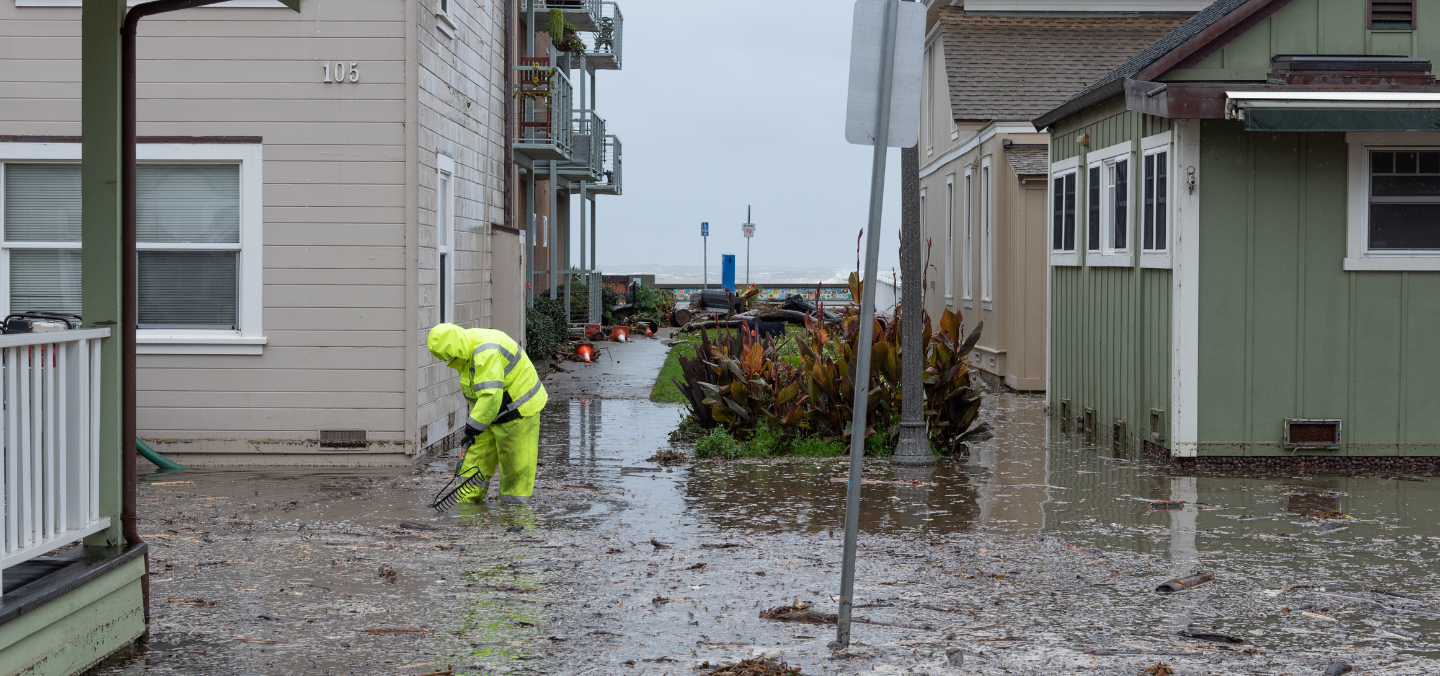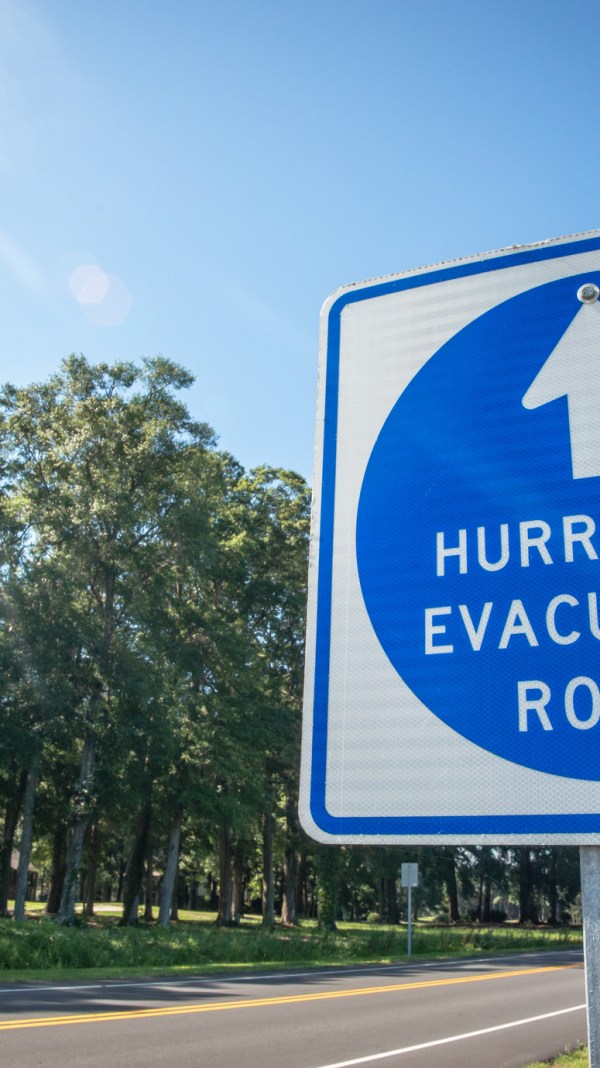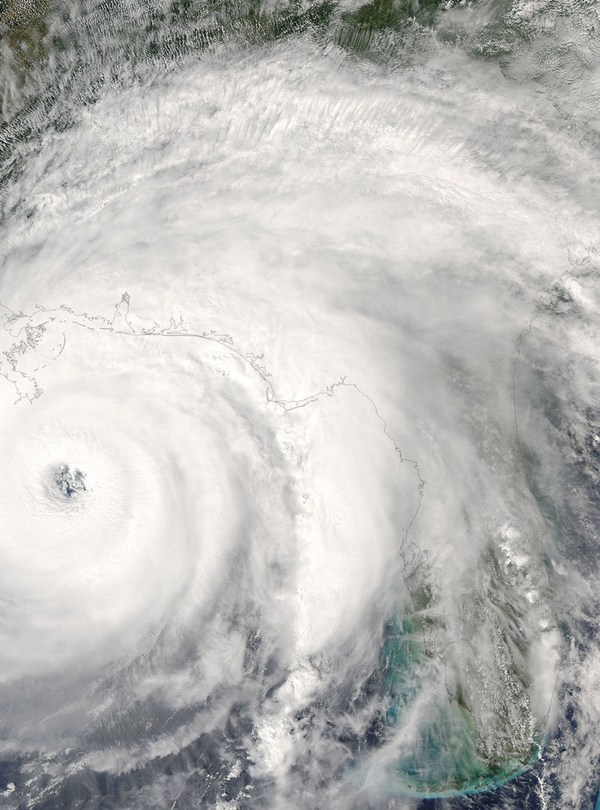Severe storms, tornadoes, floods, and mudslides have ravaged parts of the country during the past few months. If you were a victim of a natural disaster in an area designated as a federal disaster by the Federal Emergency Management Agency (FEMA) the IRS has likely extended various federal tax deadlines and other relief for you. Victims from different states – including areas in Alabama, Arkansas, California, Georgia, Mississippi, New York, and Tennessee – now have extensions to file various federal individual and business 2022 tax returns and make 2022 tax payments and may qualify for tax relief at the state level as well.
However, there are many people who have not been impacted or live in states that do not have an extension. You are still required to file on April 18th or file for an extension by that date if you live in the following states:
Alaska
Arizona
Colorado
Connecticut
Delaware
Hawaii
Idaho
Illinois
Iowa
Kansas
Kentucky
Louisiana
Maine
Maryland
Massachusetts
Michigan
Minnesota
Missouri
Montana
Nebraska
Nevada
New Hampshire
New Jersey
New Mexico
North Carolina
North Dakota
Ohio
Oklahoma
Oregon
Pennsylvania
Rhode Island
South Carolina
South Dakota
Texas
Utah
Virginia
Washington
West Virginia
Wisconsin
Wyoming
Even if you live in one of the areas designated as a federally declared disaster, but you were not impacted and have not filed your taxes yet TurboTax has you covered and can help you file before the tax deadline.
If these storms impacted you, we want you to know TurboTax is here for you, and we want to keep you up to date with important tax relief information that may help you in this time of need. Note: extension dates and federal and state requirements are dependent on the state and county where you reside or have a business – see more information for each state below.
Tax Relief for Impacted Tax Filers:
What are the extended deadlines to file tax returns and make payments for each state?
Alabama
Key Takeaways:
- Federal and State Tax & payment deadlines are extended to October 16, 2023.
- To qualify, you must have an address of record located in the disaster area.
- This applies to federal and state tax returns and tax payments.
Federal Tax Relief
In January, the IRS made an initial announcement that storm victims in parts of Alabama would qualify for tax relief. In February IRS later further extended the deadline to file various federal deadline individual and business tax returns and make tax payments until October 16, 2023.
The IRS is offering relief to any area designated by the Federal Emergency Management Agency (FEMA). This means that individuals and households that reside or have a business in Autauga and Dallas counties in Alabama qualify for tax relief. Other areas added later to the disaster area will also qualify for the same relief.
State of Alabama Tax Relief
The Alabama Department of Revenue (ALDOR) is offering tax relief to Alabama individual taxpayers and businesses in federally declared disaster areas in Alabama where damage was caused by severe weather in January. The state tax relief mirrors IRS measures in the same declared disaster areas.
Alabama taxpayers residing in areas designated as disaster areas by the federal government have until October 16, 2023, to file tax returns and make tax payments due on or after January 12, 2023, and before October 16, 2023. The relief applies to all taxes administered by ALDOR (except taxes and registration fees due under the International Fuel Tax Agreement and the International Registration Plan).
Arkansas
Key Takeaways:
- Tax deadlines & payment deadlines are extended to July 31, 2023.
- To qualify, you must have an address of record located in the disaster area.
- This applies to federal and state tax returns and tax payments.
Federal Tax Relief
The IRS announced on April 3 that Arkansas storm victims have until July 31, 2023, to file various federal individual and business tax returns and make tax payments. Currently, tax relief is available to any area designated by FEMA. This means that individuals and households residing or owning businesses in Cross, Lonoke and Pulaski counties qualify for tax relief. Other areas added later to the disaster area will also qualify for the same relief. Taxpayers in certain storm-impacted localities designated by FEMA will automatically receive the same filing and payment relief.
State of Arkansas Tax Relief
The Governor of Arkansas by Executive Order extended the 2022 individual state income tax filing date and individual state income tax payment date from April 18, 2023, to July 31, 2023, for those living in Pulaski, Lonoke, and Cross counties. This extension includes 2022 returns of Subchapter S Corporations, fiduciaries and estates, partnerships and composite returns. The requirement for a written request for an extension is waived for the duration of this emergency.
California
Key Takeaways:
- Federal tax filing and payment deadlines are automatically extended to October 16, 2023 if you have an address of record located in a federally declared disaster area.
- As announced by Governor Newsom, California individuals and businesses impacted by 2022-23 winter storms qualify for an extension to file and pay taxes until October 16, 2023.
- According to the California Franchise Tax Board, residents and businesses located in the counties listed as covered disaster areas in the IRS January 10 announcement, IRS January 24 announcement, and IRS March 17 announcement are eligible for the extended tax relief.
- The postponement of time to file and pay does not apply to residents and businesses located in Lassen, Modoc, and Shasta.
Federal Tax Relief
The IRS announced that victims of these California storms have until October 16, 2023 to file various individual and business tax returns and make certain tax payments. Currently tax relief is available to any area designated by FEMA. This means that individuals and households that reside or have a business in Alameda, Colusa, Contra Costa, El Dorado, Fresno, Glenn, Humboldt, Kings, Lake, Los Angeles, Madera, Marin, Mariposa, Mendocino, Merced, Mono, Monterey, Napa, Orange, Placer, Riverside, Sacramento, San Benito, San Bernardino, San Diego, San Francisco, San Joaquin, San Luis Obispo, San Mateo, Santa Barbara, Santa Clara, Santa Cruz, Solano, Sonoma, Stanislaus, Sutter, Tehama, Tulare, Ventura, Yolo, and Yuba counties qualify for tax relief. Taxpayers in certain storm impacted localities designated by FEMA will automatically receive the same filing and payment relief.
State of California Tax Relief
The Governor of California announced that individuals and businesses who are impacted by 2022-23 winter storms qualify for an extension to file their state tax return and pay taxes owed until October 16, 2023.
Residents and businesses located in the counties listed as covered disaster areas in the IRS January 10 announcement, IRS January 24 announcement, and IRS March 17 announcement are eligible for the extended tax relief. The postponement of time to file and pay does not apply to residents and businesses located in Lassen, Modoc, and Shasta.
Florida
Key Takeaways:
- Federal tax and payment deadlines extended to August 15, 2023.
- To qualify, you must have an address of record located in the disaster area.
Federal Tax Relief
On May 2, the IRS announced that victims of severe storms and flooding in Broward County, Florida have until August 15, 2023 to file various federal individual and business tax returns and make tax payments.This means that individuals and households that reside or have a business in Broward County qualify for tax relief. Other areas added later to the disaster area will also qualify for the same relief.
State of Florida Tax Relief
The state of Florida does not have an individual income tax. Since the IRS announcement the Florida Department of Revenue has not announced any other form of tax relief.
Georgia
Key Takeaways:
- Federal tax and payment deadlines extended to October 16, 2023
- State tax and payment deadlines extended to May 15, 2023
- To qualify, you must have an address of record located in the disaster area.
- This applies to federal and state tax returns and tax payments.
Federal Tax Relief
In January, the IRS made an initial announcement that storm victims in parts of Georgia would qualify for tax relief. In February IRS later further extended the deadline to file various federal deadline individual and business tax returns and make tax payments until October 16, 2023.
The IRS is offering relief to any area designated by the Federal Emergency Management Agency (FEMA). This means that individuals and households that reside or have a business in Butts, Henry, Jasper, Meriwether, Newton, Spalding and Troup counties in Georgia qualify for tax relief. Other areas added later to the disaster area will also qualify for the same relief.
State of Georgia Tax Relief
The latest announcement by the Georgia Department of Revenue states that certain deadlines for taxpayers have been extended until May 15, 2023, for taxpayers impacted by severe weather on January 12, 2023. This impacts Georgians in Butts, Crisp, Henry, Jasper, Meriwether, Newton, Pike, Spalding, and Troup counties.
Individuals and businesses whose records required for tax compliance are located in the disaster area will receive the extended deadline. This extension applies to return filings and tax payments.
It is recommended that tax filers e-file with direct deposit, but if you are an affected taxpayer filing paper returns you should write: “January 12, 2023 Severe Weather” across the top of any forms submitted to the Department.
Indiana
Key Takeaways:
- Federal tax and payment deadlines extended to July 31, 2023.
- To qualify, you must have an address of record located in the disaster area.
- This applies to federal tax returns and federal tax payments.
- State tax and payment deadlines are due on April 18, 2023. Please check the Indiana Department of Revenue for more extension or relief updates.
Federal Tax Relief
The IRS has announced that victims of the Indiana storms have an extended deadline until July 31, 2023 to file various federal individual and business tax returns and make payments.
The tax relief postpones various tax filing and payment deadlines that occurred starting on March 31, 2023. As a result, affected taxpayers that reside or have business in Allen, Benton, Clinton, Grant, Howard, Johnson, Lake, Monroe, Morgan, Owen, Sullivan and White counties have until July 31, 2023, to file returns and pay any taxes that were originally due during this period.
State of Indiana Tax Relief Since the IRS announcement of federal tax relief and extensions, the state of Indiana and its Department of Revenue has not announced an extension or relief. Please check the Indiana Department of Revenue website for more extension or relief updates.
Mississippi
Key Takeaways:
- Federal and State tax & payment deadlines extended to July 31, 2023.
- To qualify, you must have an address of record located in the disaster area.
- This applies to federal and state tax returns and tax payments.
Federal Tax Relief
The IRS announced that victims of the harsh storms that occurred in parts of Mississippi now have until July 31, 2023 to file various individual and business tax returns and make certain tax payments.
The tax relief postpones various tax filing and payment deadlines that occurred starting on March 24, 2023. As a result, affected taxpayers that reside or have business in Carroll, Humphreys, Monroe, and Sharkey counties have until July 31, 2023, to file returns and pay any taxes that were originally due during this period.
State of Mississippi Tax Relief
Mississippi will follow IRS extensions granted to victims of severe storms, straight-line winds, and tornadoes that took place from March 24, 2023 to March 25, 2023. Taxpayers who reside or have a business in Carroll, Humphreys, Monroe, and Sharkey counties have until July 31, 2023, to file individual income tax returns, corporate income and franchise tax returns, passthrough entity tax returns and quarterly estimated payments that were originally due during this period.
The state of Mississippi will work with any taxpayer who resides elsewhere but whose books, records, or tax professionals are located in the disaster areas.
New York
Key Takeaways:
- Federal Tax & payment deadlines extended to May 15, 2023.
- To qualify, you must have an address of record located in the disaster area.
- This applies to federal tax returns and federal tax payments.
- For New York state tax returns and tax payments you must file for an extension by April 18, 2023.
Federal Tax Relief
The IRS announced on March 24 that New York winter storm victims now have until May 15, 2023 to file various individual and business tax returns and make certain tax payments.
The tax relief postpones various tax filing and payment deadlines that occurred between December 23 and December 28, 2022. As a result, affected individuals and businesses in Erie, Genesee, Niagara, St. Lawrence and Suffolk counties will have until May 15, 2023, to file returns and pay any taxes that were originally due during this period.
State of New York Tax Relief
If you or your business was affected by the blizzard of 2022 in Erie, Genesee, Niagara, St. Lawrence, and Suffolk counties and you need more time to file you can request an income tax extension or corporate tax extension online. If you need help filing your extension contact the New York State Department of Taxation and Finance.
Tennessee
Key Takeaways:
- Federal tax & payment deadlines extended to July 31, 2023.
- To qualify, you must have an address of record located in the disaster area.
- This applies to federal tax returns and tax payments.
Federal Tax Relief
The IRS has issued relief for Tennessee storm victims and they now have until July 31, 2023 to file various federal individual and business tax returns and make tax payments. This means that individuals and households that reside or have business in Cannon, Hardeman, Hardin, Haywood, Lewis, Macon, McNairy, Rutherford, Tipton and Waynes counties qualify for relief.
State of Tennessee Tax Relief
While the state of Tennessee does not have an individual income tax, the Tennessee Department of Revenue has announced an extension for those businesses located in a designated disaster area. The Department of Revenue has extended the franchise and excise tax filing and payment deadlines to July 31, 2023.
Vermont
Key Takeaways:
- Federal tax extension deadline extended to November 15, 2023.
- This November 15, 2023 extension applies to federal tax returns that had a valid extension to file their 2022 tax return due to run out October 16, 2023.
- Tax payments related to 2022 tax returns that were due on April 18, 2023 are not eligible for relief.
- To qualify, you must have an address of record located in the disaster area.
Federal Tax Relief
The IRS has issued relief for victims of flooding in Vermont Individuals who had a valid extension to file their 2022 return due to run out on October 16, 2023 now have until November 15, 2023 to file their tax returns on extension. The IRS noted, however, that because tax payments related to these 2022 returns were due on April 18, 2023, those payments are not eligible for this relief. Quarterly estimated income tax payments, normally due on September 15, 2023 now have until November 15, 2023. The same relief is extended to quarterly payroll and excise tax returns, normally due on July 31 and October 31. Businesses with an original or extended due date including, calendar-year partnerships and S corporations whose 2022 extensions run out on September 15, and calendar-year corporations whose 2022 extensions run out on October 16 have until November 15, 2023.
State of Vermont Tax Relief Since the IRS announcement of federal tax relief and extensions, the state of Vermont and its Department of Taxes has not announced an extension or relief. Please check the Vermont Department of Taxes website for more extension or relief updates.
What do I need to do to claim the federal tax extension?
The IRS automatically provides filing and penalty relief for Federal tax returns to any taxpayer with an IRS address of record located in the disaster area. Taxpayers do not need to contact the IRS to get this relief. However, if an affected taxpayer receives a late filing or late payment penalty notice from the IRS that has an original or extended filing, payment or deposit due date falling within the postponement period, the taxpayer should call the number on the notice to have the penalty abated.
The tax relief is part of a coordinated federal response to the damage caused by the harsh storms and is based on local damage assessments by FEMA. For information on disaster recovery, visit disasterassistance.gov.
If you are not a victim, but you are looking to help those in need, this is a great opportunity to donate or volunteer your time to legitimate 501(c)(3) not-for-profit charities who are providing relief efforts for storm victims.
Check back with the TurboTax blog for more updates on disaster relief.















